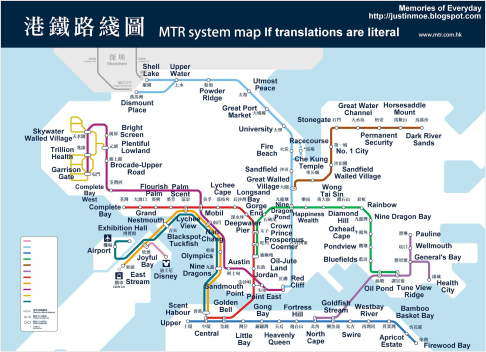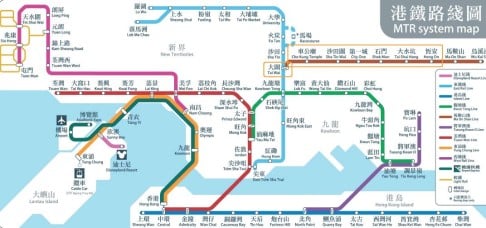New | From Nine Dragons to Fire Beach: Creator of alternative MTR map seeks translation help
The creator of an alternative map of Hong Kong's MTR system, where Cantonese names are translated into their literal English versions, is looking for help with tricky translations so he can update his work.

Justin Cheuk, 20, who is studying international relations at Durham University in the UK, created the map earlier this month when it occurred to him that the origin of the names of many MTR stations were a mystery to non-Chinese speakers
And now he is looking for help so he can publish an improved second edition.
“A few were quite difficult to translate. And there were a few where once I figured out what they meant, I was quite surprised,” he told the South China Morning Post.

For example, Wanchai station is named as such in English because it is pronounced “waan zai” in Cantonese. But in the blogger’s alternative map, the English name for Wanchai station is “Little Bay”, while Yau Tong station is “Oil Pond” and Heng Fa Chuen is “Apricot Estate”.
Several MTR stations are named after public housing estates. Cheuk said attempts to give auspicious names to the estates resulted in names that sound awkward when translated into English, such as “Permanent Security” for Heng On station and “Utmost Peace” for Tai Woo.
Cheuk said it was especially difficult to come up with a translation for Tiu Keng Leng station, which he renamed as “Tune View Ridge” but is considering changing to “Fairview Ridge”.
He is also searching for explanations of some of the stranger station names.
“I’ve heard theories that Cantonese people made up rude names on purpose to annoy the British colonial government, but I’m not sure,” he said.
He said Tsing Yi station is a Chinese pun for “stripping off clothes” in Chinese, while the original name of University Station was Ma Liu Shui, which may have been a pun for “Horse Urine”.

